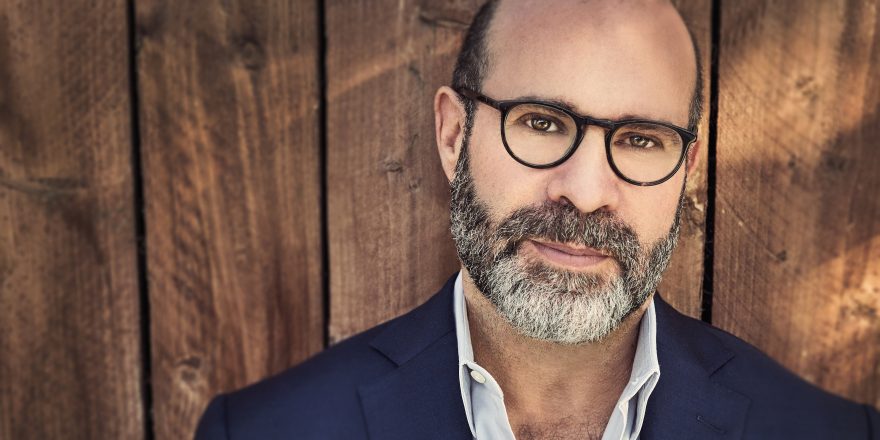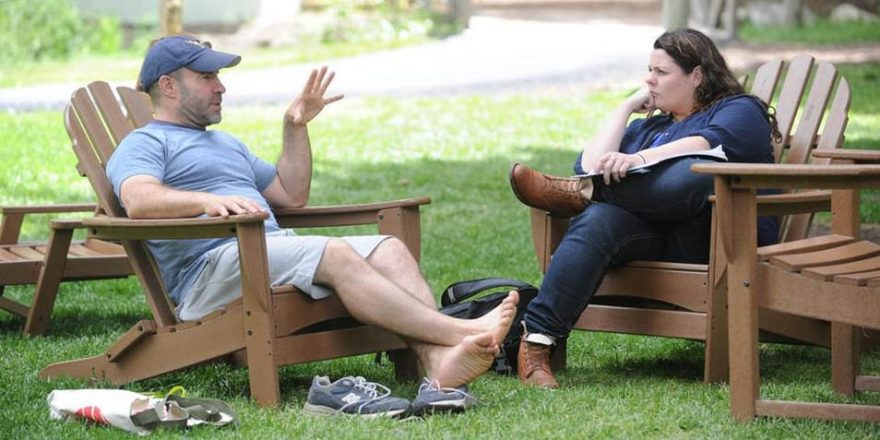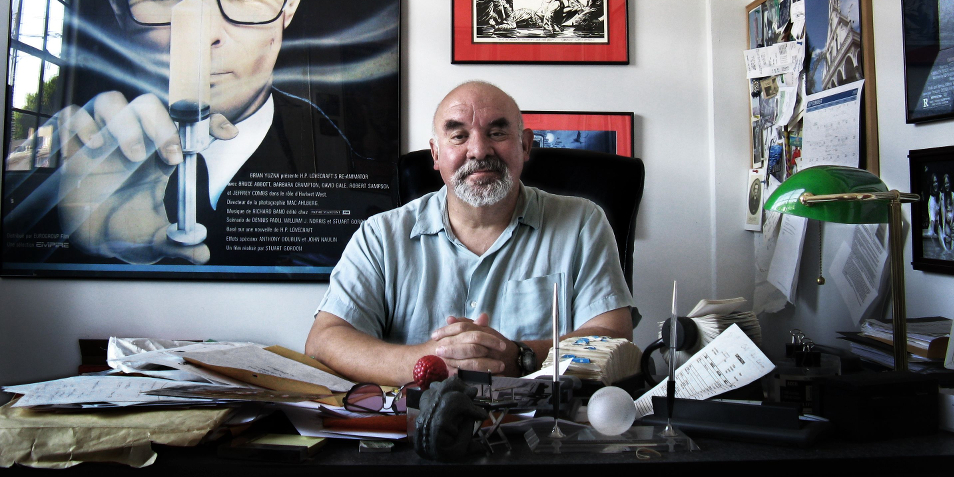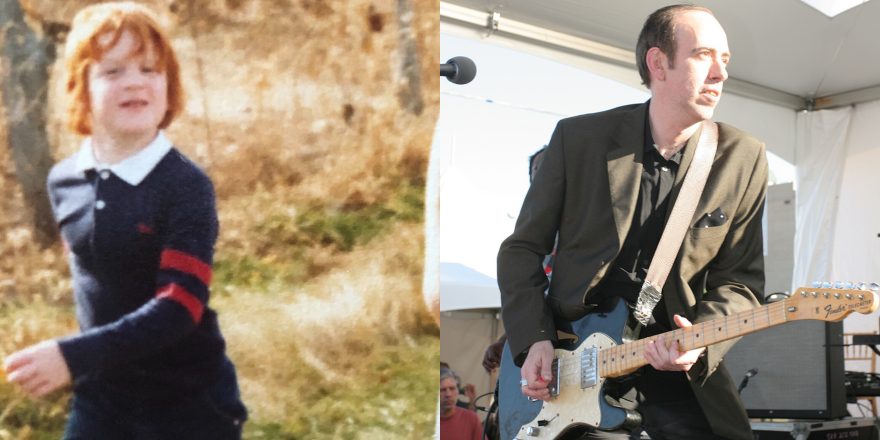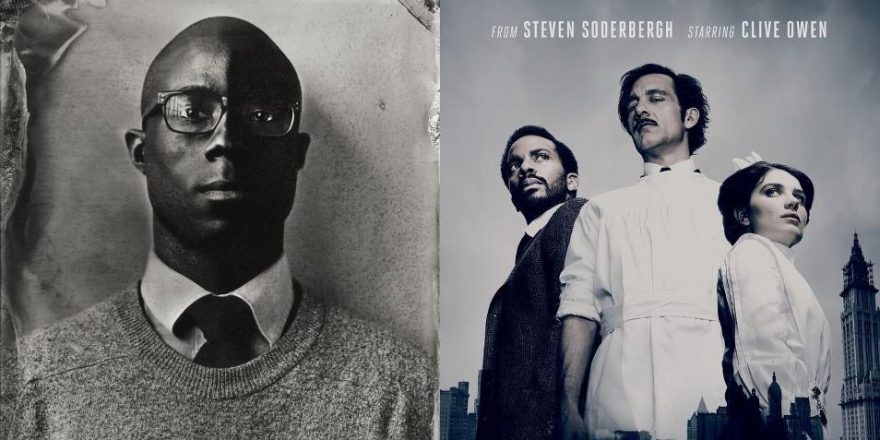Three Great Things is Talkhouse’s series in which artists tell us about three things they absolutely love. To mark the current release of acclaimed screenwriter and director Scott Z. Burns’ new Audible Original podcast What Could Go Wrong?, in which he investigates whether human creativity and AI could – and should – join forces to create a hit screenplay for a sequel to Contagion, the prescient film he wrote for Steven Soderbergh, Burns shared some of the things he loves the most. — N.D.
The Clash
Maybe I’m choosing the Clash just because I was listening to them early this morning when I got up, but I realize I’ve loved the band (and Joe Strummer, in particular) for more than half my life. Its music is a huge part of my life and what I do; it’s like I have my own little private soundtrack.
When I was in college at the University of Minnesota, my English professor, Thomas Clayton, had in his office a poster of the Clash on one wall and a poster of William Shakespeare on the other wall. I always thought that was funny. But then as I got to know both Shakespeare and the Clash better, it started to make all kinds of sense to me. There are so many pieces of Clash lyrics that are stuck in my head, that have become these recitations or meditations that are always there for me. Like, there’s an old Clash song called “Stay Free” that I like, that is a very beautiful reminiscence about how you feel about somebody who you used to be very close to, who in the case of “Stay Free,” ends up going to jail. And there’s this beautiful moment where Mick Jones says, “And if you’re in The Crown tonight, have a drink on me.” And then, of course, there are the more political things that Joe Strummer ended up saying in songs like “Bank Robber” or “Sandinista!”
Their songs just don’t seem to age. Even songs that are about other kinds of movements, like “Armagideon Time,” all have such unbelievable energy and the essence of punk. If you go back and look at an album like London Calling, where there’s tracks like “Rudie Can’t Fail” that are parked next to “Jimmy Jazz,” and then when you flip the album over (and yes, I do listen to them on vinyl!), the first song on the other side is “Spanish Bombs.” The songwriting, the singing, the passion, is really profound. And Joe Strummer, after the Clash broke up, continued to make really important work. I remember being at a Joe Strummer and the Mescaleros show at the Troubadour in L.A. and somehow finding myself next to Tom Morello, who also had a passion for the Clash and obviously shared a lot of the band’s politics. For me, Joe Strummer was John Lennon, Bob Dylan and Leonard Cohen all rolled into one. My appreciation for the Clash was something one might have thought I would grow out of, but if anything, I seem to be perpetually growing into it more and more.
Barolo
I recently decided that I love Barolo more than any other wine, and I don’t imagine this is ever going to change. I like to have a glass or two of red wine a week, and there’s just something about the way Barolos taste that sets them apart. They are such big, rich, thoughtful wines.
I was at a picnic recently and we were talking about red wine, which is probably why Barolos are on my mind. For some reason, Barolo just feels like a different category of wine, but that may be because I’ve been working with Luca Guadagnino lately, so I’ve had the opportunity to spend some time with him in Italy and drink a fair amount of Barolo. Luca is an extraordinarily talented and interesting filmmaker and a very generous, kind human being, and whenever we have a meal together, I always make sure to let him order the wine. If I asked him more questions about wine and fewer questions about film, though, I would probably be doing a better job of explaining quite why I love Barolos so much!
Whenever I’ve had a California Cabernet, I’ve always known I was doomed to have a horrible headache the next day, but when you drink a Barolo, it’s like a visit from a person who knows just when to leave. It kind of stays in your mouth, and then it’s gone. Whenever I drink it, I’m reminded of that quote which says, “If you drink too much, you’re a fool. If you don’t drink at all, you’re an even bigger fool.” Whoever said that probably had a glass of Barolo in their hand.
Steven Soderbergh
Steven Soderbergh is my third thing, and it’s really come home to roost this year how amazing he is. He is a phenomenon. I first became aware of him when sex, lies and videotape came out, I started working with him on Ocean’s 12, and since then I have had the opportunity to make four movies with him. Now he’s in a phase of working with David Koepp, and I just saw in The New York Times that both Presence and Black Bag are on the top 10 list for movies so far this year. I’m just staggered that somebody can be so good at so many different kinds of filmmaking. He’s beyond prolific, he’s extraordinarily gifted and, in my estimation, he’s also really, really underappreciated.
I first met Steven right around the time of Erin Brockovich and Traffic, and making those two movies in the same year is just phenomenal. An incredible feat. I remember when I worked with him on Ocean’s 12, I think I was cynical about the commercial nature of the endeavor. He sat me down and said, “Don’t ever think that making a popcorn movie is easier than any other kind of movie. And your obligation to the audience is equal, if not greater, because it’s a bigger audience.” To me, that was a really important insight that has informed the rest of my career. After that, I had the amazing experience of getting to stand over his shoulder and watch him work on the four movies I wrote for him. Now I’m in a period where I get to go back to being a fan of his and enjoy seeing the movies he’s made in the last couple of years, and how varied and interesting they are, and how he continues to reinvent himself.
I remember Steven saying something to me, a long time ago, which was that his rule was, I don’t want to repeat myself. That really shaped my career and my creative choices. He told me this at a time when filmmakers were encouraged to pick a genre and stay with it. But now I get to have a shared legacy with him over the movies we’ve made together. He’s been a producer on movies that I’ve directed and he’s a participant in my new podcast, What Could Go Wrong? It was interesting because when I called him to ask him about doing the podcast, he asked, “Well, are you doing this to attack AI? “And I said, “No, I’m really just doing this to learn about AI. Before we start deciding if it’s good or evil, I think we need to get to know it.” And I think that answer is exactly why he said yes. He’s really open and really curious, and I think as a creative person, those are probably the two best things you can be.



